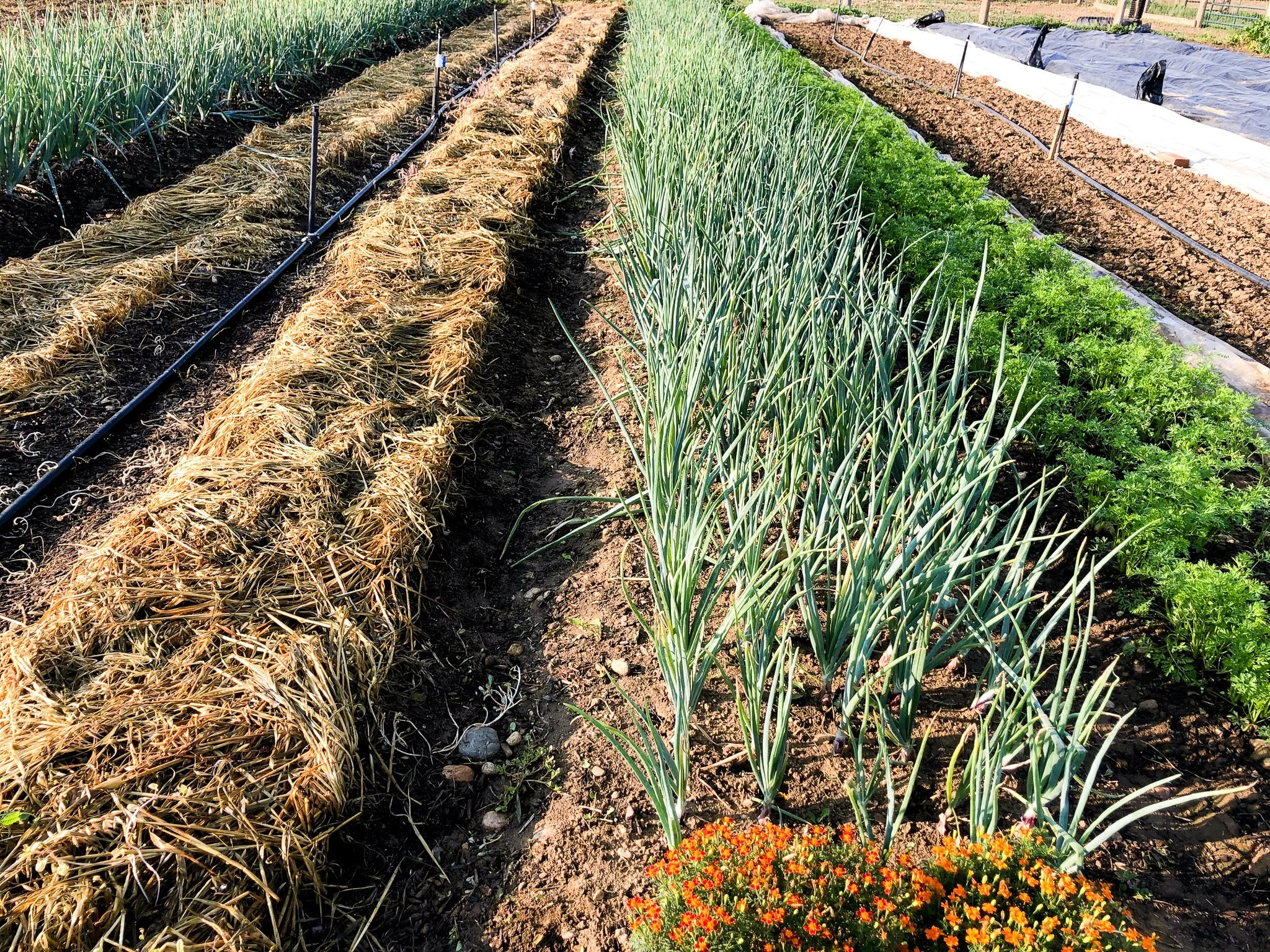Think Perenially: Wild Wellspring Farm
Wild Wellspring Farm in Boulder, Colorado, was recently awarded a Zero Foodprint Restore Grant for field border, shelter/windbreak establishment, and critical area planting.
Krisan Christensen, Wild Wellspring Farm
Winter in July
Krisan Christensen tends the fields of her farm in the heat of summer, but the crops aren’t for sale - at least not yet. Christensen owns and operates a winter-only vegetable CSA in Boulder, Colorado, where she offers fresh local produce from November to March.
She plants and cultivates cover crops in the Spring, but her work starts to heat up around the summer solstice. In July, she’s supplanting cover crops with storage vegetables like turnips and rutabaga, and checking in on long-season crops like winter squash. After the first frost hits in the fall, she’ll harvest the hardy vegetables and shift her focus to fresh greens in low and high tunnels.
Christensen grew up in the Bay Area but found her way to Colorado after an eclectic career in media, food, and agriculture that took her all across the country. These days, the slower pace of winter-focused farm operations is a welcome way to focus on one thing at a time.
“I’m walking a marathon,” Christensen says, “where as summer season farmers are sprinting a half marathon.”
Thinking in Perennials
Wild Wellspring Farm was awarded a Zero Foodprint Restore Grant this year to plant trees and shrubs that will act as windbreaks and field borders for the farm. Christensen worked with the Forest Service to identify species that are not only drought-tolerant but also provide habitat for native pollinators and local wildlife. This, in her words, has been “a really fun journey.”
Since she leases the land for Wild Wellspring Farm, it never made sense for her to plant trees, which can require significant investment and labor to install. With her Restore Grant award, however, Christensen says she finally gets the chance to “think perennially” as an annual vegetable farmer. She’s finding new opportunities to invest in practices that benefit the long-term health of the land and her local community.
”It is amazing to be able to invest resources into planting trees and pollinator habitats that will protect the farm and bring a greater benefit, that I never would be able to afford or invest in without this support.”
KRISAN CHRISTENSEN
Photo Courtesy Wild Wellspring Farm
About Wild Wellspring Farm
“Wild Wellspring Farm is a queer woman owned and operated farm, rooted in economic and environmental justice with a strong focus on inclusivity in the food system. We offer a WINTER-ONLY vegetable CSA in Boulder County, Colorado (from November through March), always available at sliding-scale prices, to ensure that our community has access to healthy food at an affordable price, during the time of year when fresh vegetables are at a minimum.
We grow using low-till, small-scale, intensive systems, integrating cover crop and soil health into every planting, and grow only open-pollinated vegetables, to emphasize the importance of and respect of this place we get to grow and live and eat.
Wild Wellspring Farm is nestled in the foothills of Boulder County, at the base of Haystack Mountain, with a clear view of the majestic Rocky Mountains, grounded in place and full of gratitude for the land we are privileged to steward.
Located on the stolen land of the Arapahoe, Cheyenne and Ute Nations, we honor the pain and challenge that comes with tending and occupying this land, and recognize that this acknowledgment will never be enough to remedy the historical traumas that this nation is built on and is still grappling with.”
-
Zero Foodprint awards grants for projects that take carbon out of the atmosphere and put it back where it belongs: in the earth, creating healthy soil and better food. To do this, we focus on regenerative farming practices like composting, cover cropping, and managed grazing that can restore life to our soil while removing carbon from the atmosphere. Together, we have the power to grow more nutritious food, heal natural water cycles, and create habitat for biodiversity to thrive. Explore previously funded projects to see what this might look like on your farm.
For more information, read through other Restore Grant FAQs.
About Zero Foodprint
Zero Foodprint (ZFP) is a nonprofit organization restoring the climate, one acre at a time. We believe that by regenerating soil, local food economies can play a critical role in reversing the global climate crisis. We work with food and beverage businesses, philanthropy and government to bring the next dollar to implement the next regenerative practice on the next acre. This regenerative economy benefits every person who grows food, every person who sells food, and every person on this planet who eats food.



